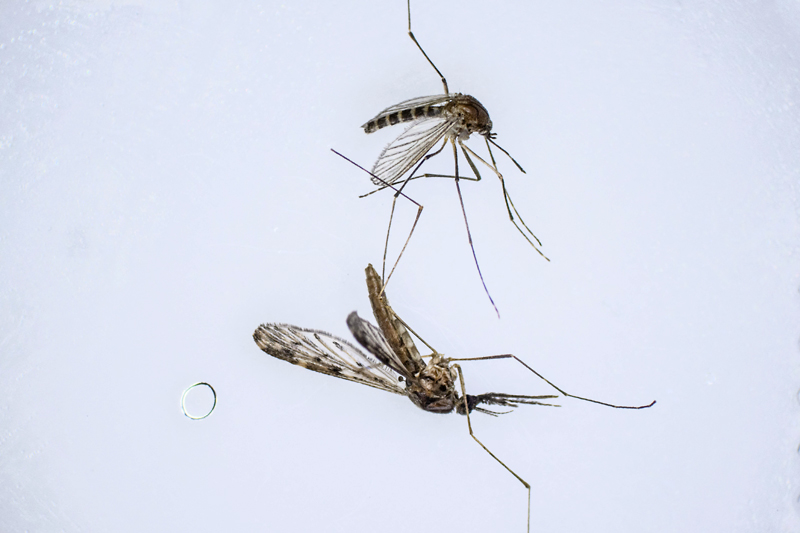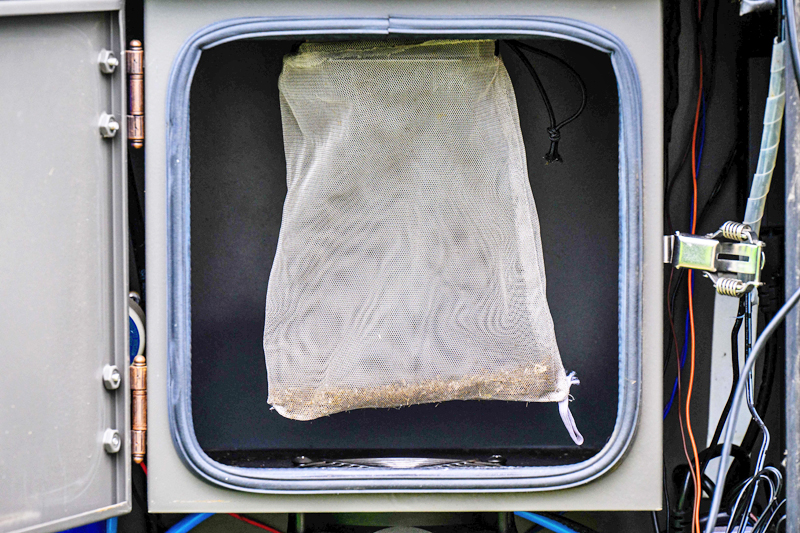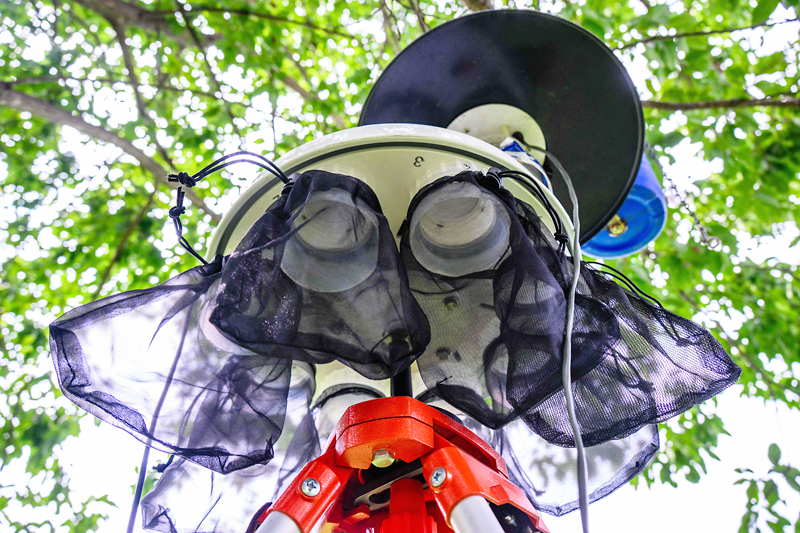PAJU, SOUTH KOREA – Near the heavily guarded border that separates North and South Korea, monitors work day and night – not tracking missiles or military movements – but catching malaria-carrying mosquitoes that might cross the border.
Despite its modern healthcare services and decades of hard work, achieving ‘malaria-free’ status remains elusive in South Korea, largely due to its proximity to isolated North Korea, where the disease is rampant.
South Korea issued a nationwide malaria alert this year, and scientists say climate change, especially warmer springs and heavier rains, could bring more mosquito-borne diseases to the peninsula unless the two countries, which are technically still fight, cooperate.
The main issue is the DMZ, a four kilometer wide no-man’s land that stretches 250 kilometers along the border.
The demilitarized zone is covered in lush forests and wetlands, and has been largely untouched by humans since it was established after the 1953 armistice that ended the Korean War.



The heavily snared border area has become an ecological haven for rare species – an Asian black bear was photographed in 2018 – and scientists say it’s also an ideal breeding ground for mosquitoes, including malaria carriers that can fly up to 12 kilometres.
The DMZ has stagnant water as well as ‘a lot of wild animals that serve as a source of blood for mosquitoes to lay their eggs in,’ said Kim Hyun-woo, a scientist at the Korea Disease Control and Prevention Agency, Seoul.
South Korea previously believed it had eradicated malaria, but in 1993 a soldier serving in the DMZ was found to have been infected, and the disease has continued ever since, with cases rising nearly 80 percent last year to 747, from 420 in 2022.
“The DMZ is not an area where pest control can be carried out,” Kim Dong-gun, a professor of environmental biology at Sahmyook University in Seoul, told AFP.
As the mosquito population increases, more malaria carriers ‘make the soldiers in the border areas their food, thus leading to ongoing cases of malaria there,’ he said.
South Korean health authorities have installed 76 mosquito detectors across the country, including in key areas near the DMZ.
North of the border, malaria is more prevalent, with WHO data showing almost 4,500 cases recorded between 2021 and 2022, with the country’s extreme poverty and food insecurity likely to exacerbate the situation.
“North Korea is a republic of infectious diseases,” Choi Jung-hun, a former North Korean doctor who defected in 2011 and now works as a doctor in the South, told AFP.
Choi said although he lives in the north of the country, he has treated malaria patients, including a North Korean soldier based near the border with the South.
Outdated equipment such as old microscopes prevent malaria from being diagnosed early and accurately, Choi said, while malnutrition and stagnant water and unsanitary facilities make residents particularly vulnerable to the disease.
The severe flooding that hit the North this summer could make matters worse. In Pakistan, a major flood disaster in 2022 contributed to a fivefold increase in malaria cases year-on-year.
“North Korea continues to rely on dilapidated communal outdoor toilets. As a result, when floods occur, sewage overflows, resulting in the rapid spread of (all kinds of) infectious diseases,” Choi told AFP.
In the past decade, about 90 percent of South Korean malaria patients have been infected in areas near the DMZ, according to official figures – although cases are rare in other areas.
Shin Seo-a, 36, was diagnosed with malaria in 2022 after being hospitalized with recurrent high fever, but she did not visit the border region that year before falling ill.
“I don’t remember being bitten by any insect,” he said AFP about the period before he fell ill.
Doctors initially thought he had a kidney infection and it took about 10 days before he was finally diagnosed with the mosquito-borne disease.
Having malaria feels like “I’m being fried on a very hot pan,” he told AFPsaying it was so painful that in tears she said, “I once begged the nurse to knock me out.”
Malaria in the Korean peninsula is caused by the parasite Plasmodium vivax and is known to be less lethal than tropical malaria caused by Plasmodium falciparum, which affects many African countries.
Even so, after contracting malaria Shin suffered Nontuberculous mycobacteria, lung disease that usually affects individuals with a weak immune system.
“Malaria is a really scary disease,” he said AFPadding that he hopes more can be done to prevent its spread.
But with nuclear-armed North Korea declaring Seoul its ‘main enemy’ this year and cutting ties, as it rejects repeated offers of foreign aid, cooperation on malaria seems impossible. – AFP

